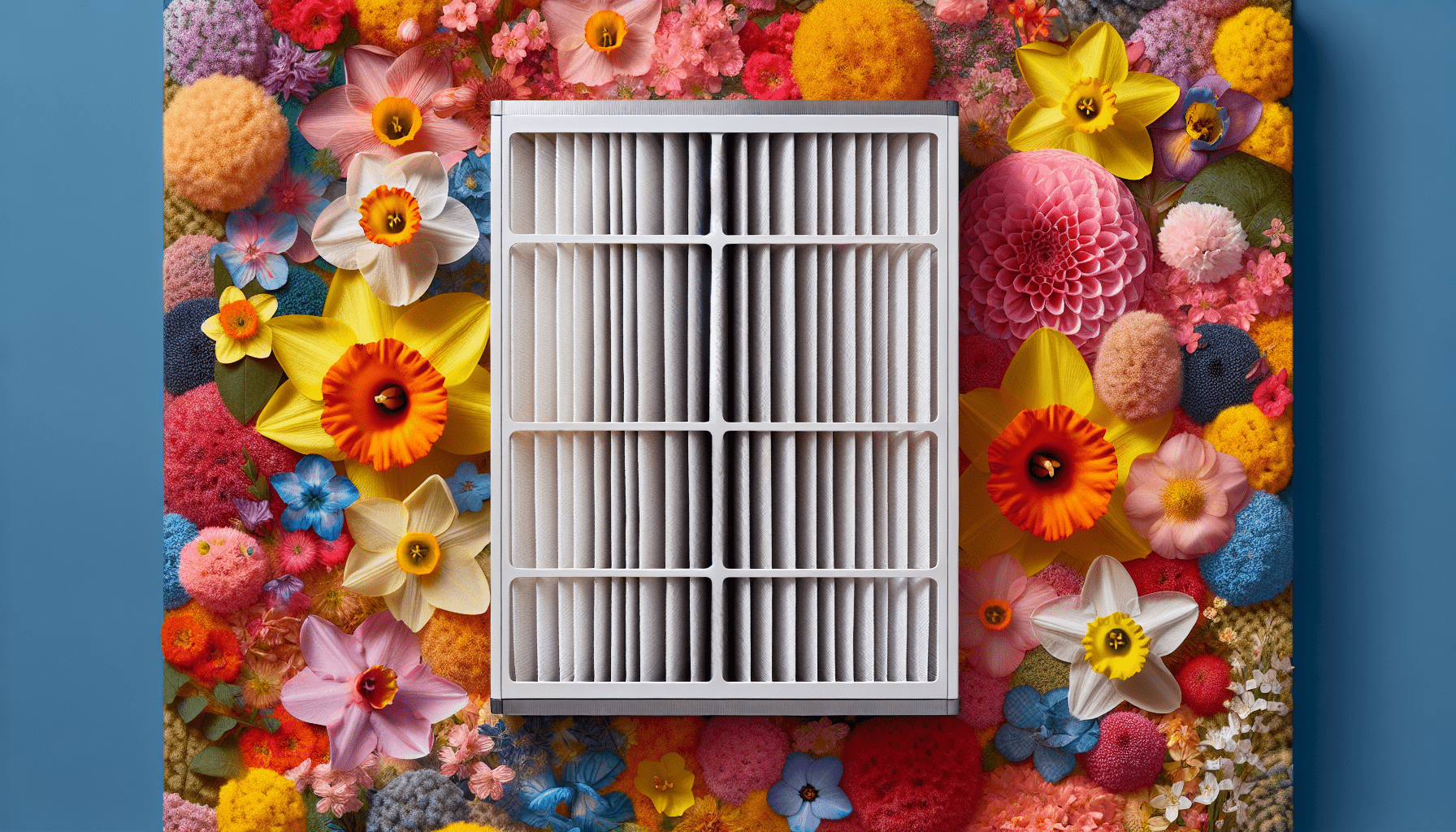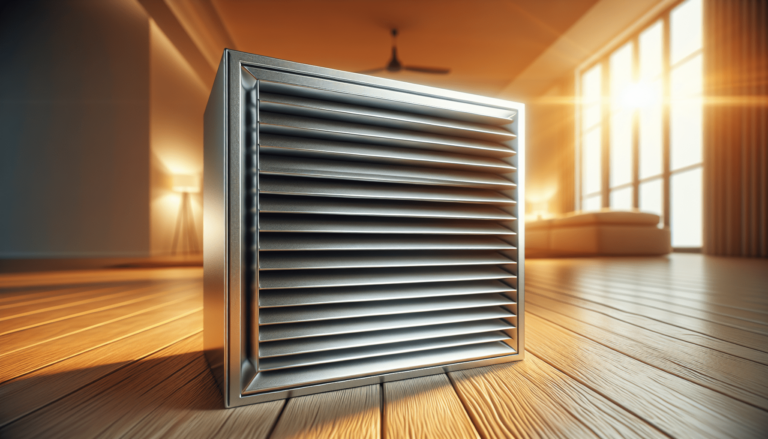

HVAC Services
Get Professional Repairs From The Area's Trusted HVAC Technicians. Ask About Our Services! We Offer Professional Heating & Cooling System Repairs And Guarantee Long-Lasting Results.
Got Question? Call us: (850) 678-2665Financing
Reducing HVAC-Related Allergens In Spring
Discover effective strategies to reduce HVAC-related allergens this spring. Improve air quality and health in your home, unearthing joy without the sneezes!

Have you ever noticed an uptick in sneezing or stuffy noses as spring rolls around? Without a doubt, spring brings beautiful blooms and new beginnings, but it can also usher in a wave of allergies. Your HVAC system might unknowingly play a significant role in spreading allergens throughout your home. Doesn’t that sound challenging? Fortunately, there are steps you can take to reduce HVAC-related allergens, creating a healthier indoor environment for both you and your loved ones.

Understanding the Role of HVAC Systems in Allergens
HVAC systems do more than just keep your home warm in the winter and cool in the summer. They circulate air throughout your space, and if not maintained properly, they can spread allergens like pollen, dust, and mold. These pesky particles can make breathing a bit rougher during a season when you want to enjoy the fresh air. Understanding this can be an eye-opener and help you take control of the situation.
How Do Allergens Enter Your HVAC System?
Pollen, dust, and mold spores find their way into your home through windows, doors, and even on your clothing and shoes. Your HVAC system, with its air ducts and vents, can act like a shuttle, transporting these allergens from one room to another and spreading them all over your indoor space. Once trapped in the system, they can continually recirculate, potentially affecting your health and comfort.
The Impact on Your Health
Allergens can cause respiratory issues, itchy eyes, and even trigger asthma attacks. It’s like a never-ending game of dodgeball where the better you get at avoiding a hit, the sneakier these allergens become. By paying attention to your HVAC system, you can reduce these risks and breathe a little easier as spring unfolds its beauty outside.
Practical Steps to Reduce HVAC-Related Allergens
Knowing the problem is one thing, but finding solutions is the golden key. Thankfully, there are effective strategies you can use to keep allergens at bay. Taking action not only improves air quality but also enhances your overall health. Let’s explore how you can make this happen.
Regular Maintenance of Your HVAC System
Routine maintenance is crucial. Think of it like going for a regular health check-up. It involves cleaning or replacing air filters, inspecting ducts, and making sure your HVAC unit is in prime condition. By keeping your system clean, you cut down on the accumulation and circulation of allergens.
Choosing the Right Air Filters
Air filters vary in their ability to trap particles. Opting for filters with a high Minimum Efficiency Reporting Value (MERV) rating can trap even small particles like pollen and pet dander. Changing these filters every three months or as advised by the manufacturer can make a significant difference.
| Filter Type | MERV Rating | Description |
|---|---|---|
| Standard Fiberglass | 1-4 | Captures large particles but not small allergens |
| Pleated Filters | 5-8 | Better at capturing dust and allergens |
| HEPA Filters | 9-12 | Highly effective at capturing small particles |
Cleaning Air Ducts
Dust and debris can accumulate in the ductwork over time. This forms a breeding ground for mold and bacteria. Hiring professionals to clean your ducts can remove these hidden threats, ensuring the air circulating in your home is cleaner and safer.
Controlling Humidity Levels
Humidity can also affect allergen levels. Mold thrives in humid environments, so keeping your indoor humidity between 30-50% can prevent its growth. Using dehumidifiers in damp areas can help maintain this balance and make your home less conducive to allergens.
The Importance of Ventilation
Proper ventilation allows the fresh air to circulate, pushing out stale and allergen-filled air. Sometimes, the simplest step like opening a window can help, but it’s essential to consider how to ventilate without letting more allergens in.
Natural Ventilation
When the weather permits, opening windows can refresh your indoor air. However, it’s essential to do this when pollen levels are lower, such as during the early morning or after rain, to minimize bringing new allergens into your space.
Using Vent Fans
Kitchen and bathroom vent fans help reduce moisture levels, deterring mold growth. These fans also expel odors and airborne particles, contributing to better air quality. It’s a simple yet effective way to support HVAC effectiveness in allergen control.
The Impact of Landscaping on Indoor Air Quality
Your home’s external environment plays a role in the allergens that enter your HVAC system. By managing the landscape around your home, you can further reduce allergen intrusion.
Planting Strategies
Consider planting trees and shrubs that do not produce high pollen levels. Trees like oak and birch are known for high pollen production, so choosing alternatives can lessen the pollen near your home.
Keeping Pollen Producers Away
Keep flowering plants away from windows and doors, as this minimizes the amount of pollen entering your home. Creating a buffer zone keeps allergens at a distance, lessening what your HVAC system might circulate.

Regularly Checking HVAC Performance
Like any other household necessity, your HVAC system needs regular checks. Keeping tabs on its performance helps identify issues early and ensures it’s functioning optimally for allergen reduction.
Monitoring Energy Use
If you notice a spike in energy bills without apparent reason, it might indicate your HVAC isn’t running efficiently. This could be due to clogged filters or ducts, which can circulate allergens more aggressively.
Listening for Unusual Noises
Strange noises can be a sign of mechanical issues within your HVAC system. Addressing them quickly prevents more extensive damage and ensures allergens don’t get an easy pass into your living space.
Professional Guidance and Services
Sometimes, handling HVAC maintenance and allergen control can feel a bit overwhelming. Professionals offer valuable expertise to ensure your system works efficiently and effectively.
Consulting HVAC Professionals
Experts can perform thorough inspections, cleanings, and maintenance checks to guarantee your system is in top shape. They provide peace of mind, knowing that everything possible is being done to keep allergens at a minimum.
Regular Service Contracts
Consider enrolling in a regular service plan with HVAC professionals. This ensures your system receives consistent attention and care, which helps in continually reducing allergens.
Benefiting from Smart Technology
The rise of technology offers new ways to manage your HVAC system more effectively. Smart thermostats and air quality monitors offer opportunities to combat allergens efficiently.
Smart Thermostats
Smart thermostats not only regulate temperature but also allow you to control humidity levels remotely. Their sensors can predict optimal settings to reduce allergen spread and monitor air quality.
Air Quality Monitors
Investing in air quality monitors gives you real-time data on your indoor environment’s health. These devices track pollen, dust, and other tiny particles, providing necessary alerts for timely intervention.
Embracing a Healthier Lifestyle
Taking steps to reduce HVAC-related allergens is part of a broader journey toward healthier living. By paying attention to your environment, you protect your health and well-being.
Simple Everyday Practices
Regular dusting, vacuuming with a HEPA filter, and washing bed linens in hot water help remove allergens before they infiltrate your HVAC system. These small steps accumulate into significant improvements for your indoor air quality.
Encouraging Family Participation
Turning allergen reduction into a family activity not only makes it more fun but also educates everyone on the importance of maintaining a healthy home. Setting routines together breeds awareness and responsibility.
Conclusion
Springtime shouldn’t feel like a battle against nature just because of allergens. By proactively maintaining your HVAC system and taking a few extra steps, you can enjoy the season without compromising your comfort. Not only will these actions bring about better air quality, but they’ll also enhance your daily living experience. So why not start today? It’s time to reclaim your home from pesky allergens and make it a haven for fresh, clean air.
For further assistance or information about maintaining optimal air quality in your home, consider consulting Tempacure Heating and Air Conditioning. Reach out to them at (850) 678-2665 or visit Tempacure HVAC. They’re located at 325 Cedar Ave S, Suite B, Niceville, FL 32578, and are equipped to help you enjoy a healthier living space.







